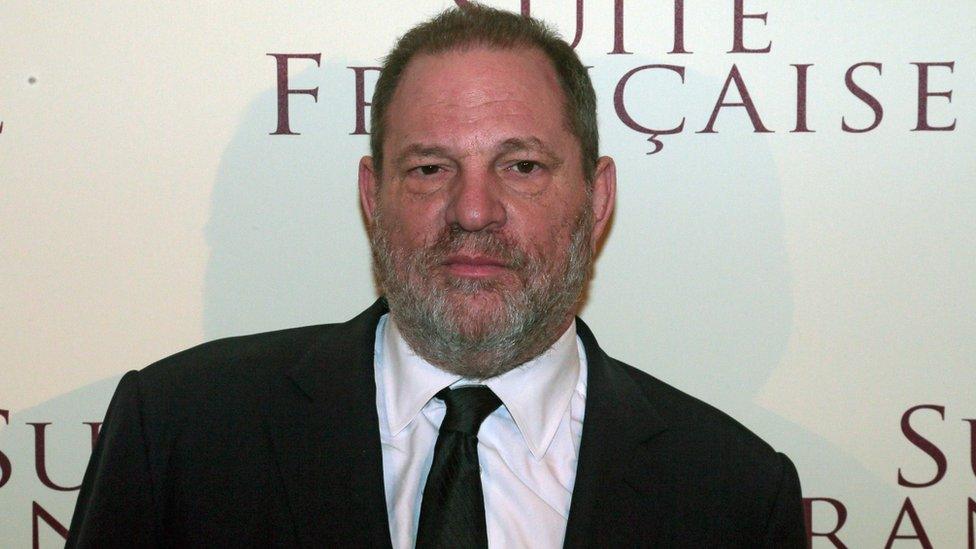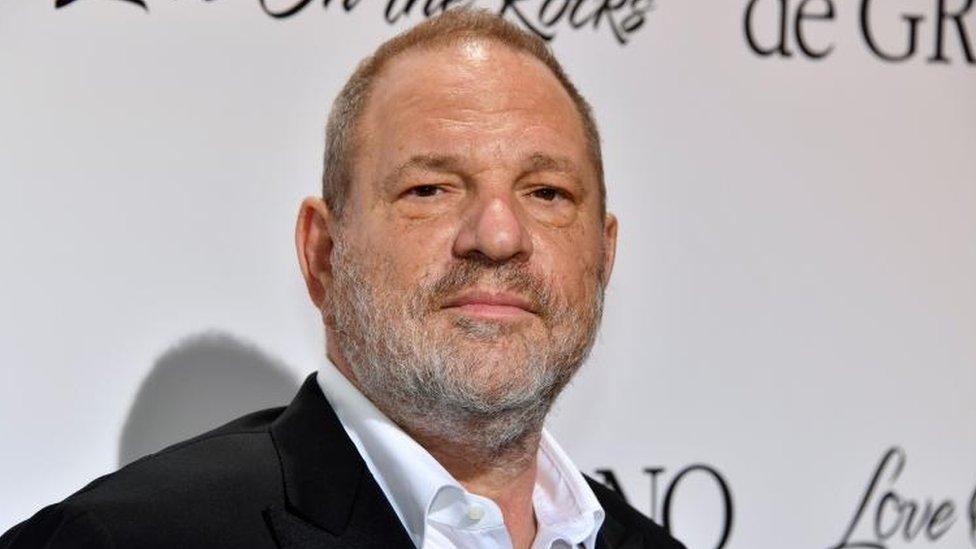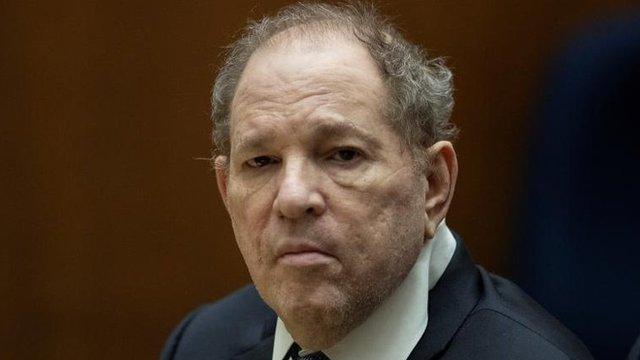Weinstein Company files for bankruptcy
- Published

More than 40 women have accused Mr Weinstein of misconduct
Harvey Weinstein's former company has filed for bankruptcy, months after the Oscar-winning producer was accused of multiple sexual assaults.
The move by the Weinstein Company is intended to facilitate a buy-out offer from a private equity firm.
The film and TV studio also said it was releasing any victims of Mr Weinstein's alleged misconduct from non-disclosure deals stopping them from speaking out.
Mr Weinstein, 66, insists sexual relations he had were consensual.
He was fired as chairman of the Weinstein Company last October when the allegations were first reported.
Once a powerhouse of the entertainment industry, the company will be known as the first high-profile firm that went into bankruptcy as a direct result of workplace sexual misconduct, the BBC's Nick Bryant in New York reports.
What did the Weinstein Company say?
On Monday, the firm filed for Chapter 11 bankruptcy - a move permitting its reorganisation.
The Weinstein Company - which was co-founded by Harvey Weinstein and his brother Bob in 2005 - also announced a "stalking-horse" agreement with Lantern Capital Partners private equity firm.
The deal means that the private equity firm would buy assets if this is approved by a bankruptcy court.
"While we had hoped to reach a sale out of court, the board is pleased to have a plan for maximising the value of its assets, preserving as many jobs as possible and pursuing justice for any victims," the Weinstein Company chairman Bob Weinstein said in a statement.
The Weinstein Company, which was behind films including The King's Speech and The Artist, has been under intense pressure over the sexual assault allegations against co-founder Harvey Weinstein.
What about non-disclosure agreements?
In a statement, the company said: "Since October, it's been reported that Harvey Weinstein used non-disclosure agreements as a secret weapon to silence his accusers," the company said in a statement.
"Effective immediately, those 'agreements' end. No-one should be afraid to speak out or coerced to stay quiet."
The move was heralded by New York's Attorney General Eric Schneiderman as a watershed moment, one that would finally enable voices that for too long have been muzzled to be heard.
Although it is not yet clear how many people can now speak out.
Mr Weinstein has been accused of rape, sexual assault and harassment, but has "unequivocally denied" any allegations of non-consensual relationships.
- Published16 October 2017

- Published17 October 2017

- Published10 January 2019

- Published24 February 2023
